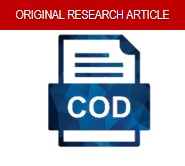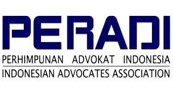The Traditional Law as Alternative Dispute Resolution in Papua
DOI:
https://doi.org/10.46924/jihk.v1i1.121Keywords:
Traditional Law, Land Dispute, Dispute ResolutionAbstract
Indonesia is a country with a variety of cultures that stretch from Sabang to Merauke. Cultural diversity makes Indonesia establish more legal systems. Other than the Dutch’s positive legal system, Indonesia’s legal pluralism also applies to the Islamic legal and the traditional law systems which are so-called Indonesia’s original law according to which traditional law experts. Legal centralism (positive law) imposed by the state on the Indonesian people is a form of neglect of other legal systems, especially the traditional law system. Without realizing it, the majority of the Indonesian population are indigenous people from various ethnic groups, but are shackled by legalistic positivism based on written regulations. However, it is different from most Papuan indigenous peoples with a strong desire to make traditional law an independent legal system. The independent traditional law system must be a legitimate desire from the values that live and grow in society. Therefore, traditional law is an option for Papua indigenous peoples in resolving any disputes, because the ideal law is able to satisfy all parties without winning one party and defeating the other.
Downloads
References
Jurnal
Benda-Beckmann, Keebet von, and Bertram Turner. “Legal Pluralism, Social Theory, and the State.” The Journal of Legal Pluralism and Unofficial Law 50, no. 3 (2018): 255–74. https://doi.org/10.1080/07329113.2018.1532674.
Fredman, Sandra. “Substantive Equality Revisited.” International Journal of Constitutional Law 14, no. 3 (2016): 712–738. https://doi.org/10.1093/icon/mow043.
Hantoro, Novianti Murti, Trias Palupi Kurnianingrum, Denino Doly, Monika Suhayati, and Sulasi Rongiyati. Negara Dan Masyarakat Hukum Adat. Edited by Fokky Fuad. Jakarta: Pusat Penelitian Badan Keahlian DPR RI, 2016.
Islamiyati, Islamiyati. “Kritik Filsafat Hukum Positivisme Sebagai Upaya Mewujudkan Hukum Yang Berkeadilan.” Law, Development and Justice Review 1, no. 1 (2018): 82–96. https://doi.org/10.14710/ldjr.v1i1.3574.
Manarisip, Marco. “Eksistensi Pidana Adat Dalam Hukum Nasional.” Lex Crimen 1, no. 4 (2012): 24–40. https://ejournal.unsrat.ac.id/index.php/lexcrimen/article/view/900.
Massoud, Mark Fathi. “Ideals and Practices in the Rule of Law: An Essay on Legal Politics: An Essay on Legal Politics.” Law & Social Inquiry 41, no. 2 (2016): 489–501. https://doi.org/10.1111/lsi.12196.
Nurjaya, I Nyoman. “Memahami Kedudukan Dan Kapasitas Hukum Adat Dalam Politik Pembangunan Hukum Nasional.” Jurnal Perspektif 16, no. 4 (2011): 236–43. http://dx.doi.org/10.30742/perspektif.v16i4.86.
Perrin, Jonas. “Legal Pluralism as a Method of Interpretation: A Methodological Approach to Decolonising Indigenous Peoples’ Land Rights under International Law.” Universitas: Revista de Ciencias Sociales y Humanas 15, no. 26 (2017): 23–60. https://doi.org/http://dx.doi.org/10.17163/uni.n26.2017.01.
Pratiwi, Anisa Eka, Sugeng Triyono, Imam Rezkiyanto, and Achmad Sidiq Asad. “Eksistensi Masyarakat Adat Di Tengah Globalisasi.” Jurnal Civics Media Kajian Kewarganegaraan 15, no. 2 (2018): 95–102. https://doi.org/10.21831/jc.v15i2.17289.
Ridwan, Dimyati Khudzaifah, and Aidul Fitriciada Azhari. “Perkembangan Dan Eksistensi Hukum Adat: Dari Sintesis, Transplantasi, Integrasi Hingga Konservasi.” Jurnal Jurisprudence 6, no. 2 (2016): 106–14. https://doi.org/10.23917/jurisprudence.v6i2.3008.
Rottleuthner, Hubert. “A Purified Sociology of Law: Niklas Luhmann on the Autonomy of the Legal System.” Law & Society Review 23, no. 5 (1989): 779–98. https://doi.org/10.2307/3053763.
Sah, Sunita. “Policy Solutions to Conflicts of Interest: The Value of Professional Norms.” Behavioural Public Policy 1, no. 2 (2017): 177–89. https://doi.org/10.1017/bpp.2016.9.
Sudaryatmi. “Peranan Hukum Adat Dalam Pembangunan Hukum Nasional Di Era Globalisasi.” Masalah-Masalah Hukum 41, no. 4 (2012): 572–78. https://doi.org/https://doi.org/10.14710/mmh.41.4.2012.572-578.
Sumanto, Dedi. “Hukum Adat Di Indonesia Perspektif Sosiologi Dan Antropologi Hukum Islam.” Jurnal Syari’ah 17, no. 2 (2018): 181–91. http://dx.doi.org/10.31958/juris.v17i2.1163.
Wicaksono, Dian Agung, and Ananda Prima Yurista. “Inisiasi Pemerintah Daerah Dalam Mengatur Alternatif Penyelesaian Sengketa Tanah Berbasis Adat Di Kabupaten Manggarai.” Jurnal Penelitian Hukum De Jure 18, no. 2 (2018): 275–88. https://ejournal.balitbangham.go.id/index.php/dejure/article/view/406.
Zarbaliyev, Habib. “Multiculturalism In Globalization Era: History And Challenge For Indonesia.” IJSS 13, no. 1 (2017): 1–16. https://doi.org/10.21831/jss.v13i1.16966.
Zuhri, Lahmuddin. “Peran Nilai Lokal Dalam Penyelesaian Sengketa Pertanahan (Sebuah Analisis Model Mediasi Perdata).” Jurnal Notariil 1, no. 1 (2016): 14–36. https://doi.org/10.22225/jn.1.1.105.14-36.
Laporan Penelitian
Sampford, Charles. “Strengthening Networked Leaders to Promote Integrity and Effective Governance While Combating Corruption,” 2018.
Buku
Nugroho, Susanti Adi. Mediasi Sebagai Alternatif Penyelesaian Sengketa. Jakarta: Telaga Ilmu Indonesia, 2009.
Saptomo, Ade. Hukum Dan Kearifan Lokal Revitalisasi Hukum Adat Nusantara. Jakarta: PT. Grasindo, 2010.
Turkel, Gerald. Law and Society: Critical Approaches. Boston: Allyn and Bacon, 1996.
Downloads
Published
Issue
Section
License
Authors who publish with this journal agree to the following terms:
- Copyright on any article is retained by the author(s).
- The author grants the journal, the right of first publication with the work simultaneously licensed under a Creative Commons Attribution License that allows others to share the work with an acknowledgment of the work’s authorship and initial publication in this journal.
- Authors are able to enter into separate, additional contractual arrangements for the non-exclusive distribution of the journal’s published version of the work (e.g., post it to an institutional repository or publish it in a book), with an acknowledgment of its initial publication in this journal.
- Authors are permitted and encouraged to post their work online (e.g., in institutional repositories or on their website) prior to and during the submission process, as it can lead to productive exchanges, as well as earlier and greater citation of published work.
- The article and any associated published material is distributed under the Creative Commons Attribution 4.0 International License




 Sinta ID:
Sinta ID: 


















